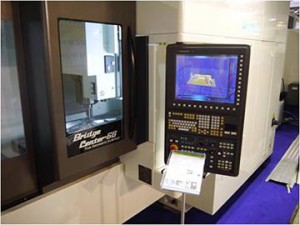 Researchers at Kobe University, Japan, has developed a prototype machine tool that can manufacture metal components and operates like a 3D printer. This development could speed up the manufacture of custom-made products such as dental implants and artificial bones, potentially shortening production times and reducing costs.
Researchers at Kobe University, Japan, has developed a prototype machine tool that can manufacture metal components and operates like a 3D printer. This development could speed up the manufacture of custom-made products such as dental implants and artificial bones, potentially shortening production times and reducing costs.
The machine tool prototype is a product of Kobe University’s ongoing research into intelligent machine tools. This is one of three Kobe University projects in the category of “Innovative design and manufacturing technologies” selected for the Strategic Innovation Promotion Program (SIP), a project headed by the Japanese Cabinet Office’s Council for Science, Technology and Innovation. In June 2015 Kobe University used funding from this program to establish the 3D Smart Manufacturing Center, which will be used to pursue interdisciplinary research and business-academia collaborations.
Currently most machine tools for metal cutting follow instructions from a program that is manually prepared in advance. However, in addition to the huge amount of labor required to create each program, this method has potential issues, as the machines cannot make adjustments to the machining process or respond to unforeseen problems. Metal components can also be shaped using metal 3D printers, but this too has disadvantages: the metal powder used as a raw material is extremely expensive, and the surface of the finished component is poor quality.
The prototype created by Professor Shirase’s team marks a shift from providing machine tools with instructions to entrusting machine tools with the machining operation – a world first. If you prepare a 3D model and a material model of the component, the machine tool itself will determine the optimum machining process using a database of machining information and cutting conditions. This development could potentially pave the way for intelligent manufacturing systems, reduced costs, and faster production times.


